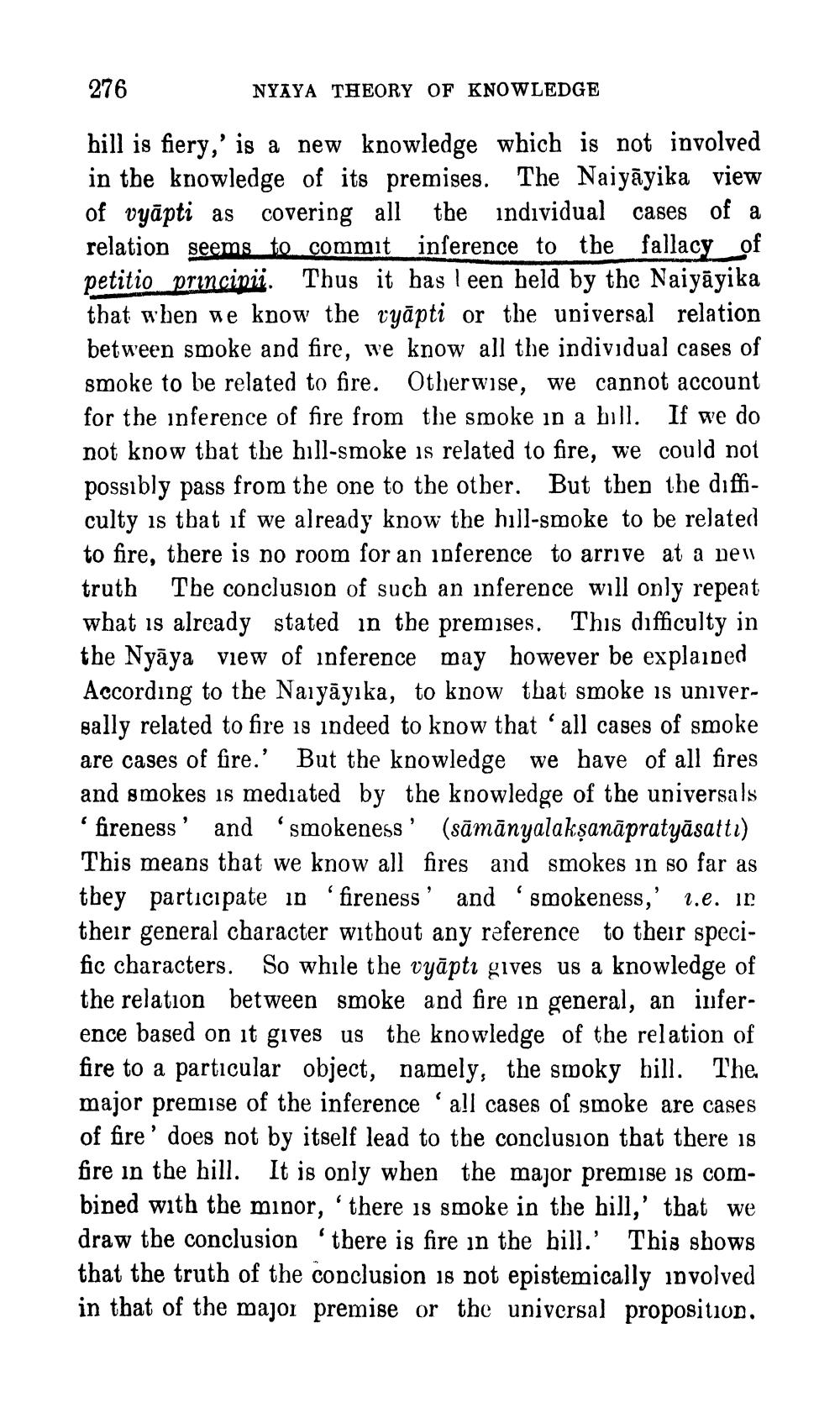________________
276
NYAYA THEORY OF KNOWLEDGE
hill is fiery,' is a new knowledge which is not involved in the knowledge of its premises. The Naiyāyika view of vyāpti as covering all the individual cases of a relation seems to commit inference to the fallacy of petitio princinii. Thus it has leen held by the Naiyāyika that when we know the tyāpti or the universal relation between smoke and fire, we know all the individual cases of smoke to be related to fire. Otherwise, we cannot account for the inference of fire from the smoke in a bill. If we do not know that the hill-smoke is related to fire, we could not possibly pass from the one to the other. But then the difficulty is that if we already know the hill-smoke to be related to fire, there is no room for an inference to arrive at a new truth The conclusion of such an inference will only repeat what is already stated in the premises. This difficulty in the Nyāya view of inference may however be explained According to the Naiyāyıka, to know that smoke is universally related to fire is indeed to know that all cases of smoke are cases of fire.' But the knowledge we have of all fires and smokes is mediated by the knowledge of the universals 'fireness' and 'smokeness' (sāmānyalaksanāpratyāsattı) This means that we know all fires and smokes in so far as they participate in 'fireness and smokeness,' 1.e. in their general character without any reference to their specific characters. So while the vyāptı gives us a knowledge of the relation between smoke and fire in general, an inference based on it gives us the knowledge of the relation of fire to a particular object, namely, the smoky bill. The major premise of the inference 'all cases of smoke are cases of fire' does not by itself lead to the conclusion that there is fire in the hill. It is only when the major premise is combined with the minor, there is smoke in the bill,' that we draw the conclusion there is fire in the bill.' This shows that the truth of the conclusion is not epistemically involved in that of the major premise or the universal proposition.




